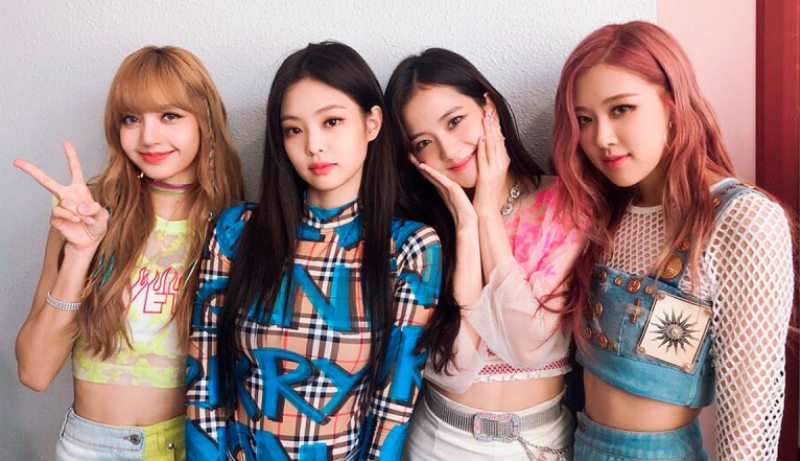Kpop Idea
What does the K-pop revolution imply for American politics?
Korean pop music (K-pop) enthusiasts have made waves in American politics in recent weeks. By posting brief footage of K-pop singers, they were attributed with crashing the iWatch Dallas app. They also utilized the hashtag #WhiteLivesMatter to submit K-pop videos, making it worthless for white nationalists seeking find each other. The One in an Army fan collective raised $1 million in 24 hours to match a gift to Black Lives Matter causes made by the popular Korean boy band BTS. Adding to the list of achievements is humiliating President Trump by assisting in the creation of a large number of fake registrations for his event in Tulsa.
What is K-pop, and why are its followers so involved in politics in the United States? K-pop is a global cultural force, with music groups topping Billboard charts all over the world (in 2019, BTS had three No. 1 albums). It's not just music, either. It's clear that Korean pop culture is popular in the United States, as seen by the success of "Parasite" on the movie award circuit and Netflix's selection of Korean dramas. Although the majority of K-pop fans involved in these actions in English-speaking Internet forums are Americans, their political engagement is founded in fan habits borrowed from Korean popular culture.
Korean entertainment has long been popular in the United States. The US Army began hiring Korean singers, dancers, and musicians to amuse troops during the Korean War. Artists were forced to memorize American songs after hearing them on AFKN, the military radio station (American Forces Korea Network). The Kim Sisters moved to Las Vegas in the late 1950s, where they played American songs, Korean folk music, and new compositions while appearing on American television often during the 1960s and 1970s.

Korea, on the other hand, has been exporting pop music on a large scale for the past 30 years. Korea's media liberalized in the late 1980s, coinciding with the country's democracy. In 1992, the rise of modern K-pop, which combines contemporary hip-hop components, reached a tipping point. K-pop is distinguished by its choreographed dancing and polished pop performances.
As Korea's popular music business grew, it was meant to keep fans extremely involved by hanging performers' expectations on their fans' activities.
Fans were urged to "raise" artists who had become "idols" in the music industry. They banded together as followers of a single group or solo idol and campaigned on their behalf, turning up at events dressed in the chosen fandom color, ready to express their devotion and boost their idols' fame. In the Korean media world, public support was important: it boosted idols with well-organized fandoms. More media attention was gained as a result of letter-writing campaigns and demonstrations.
Fans might exert pressure on corporations to promote their favorite celebrities' new releases or to provide them less demanding practice and media appearance schedules. And, of course, cassette and CD sales followed. Success gave fans more ability to intervene in idols' careers, to the point that entertainment agencies had to play a delicate balancing act as supporters battled the stars' strict control with their own demands.
This position for fans sparked debate. In the late 1990s, Korean media began portraying fans as stalkers who engaged in obsessive conduct because of their devotion to their heroes. Anti-fans have also formed to propagate conspiracies, such as a 2010 effort to discredit EPIK HIGH member Tablo's educational qualifications, which resulted in death threats against his family and, eventually, a criminal prosecution of one of the rumors' instigators.
Artists were also subjected to additional demands as a result of this popularity. Idols were showered with presents (known in Korean as jogong, or homage) including plush animals, friendship bracelets, and knitted scarves, as well as expensive watches and purses purchased with fan club funding. If idols were ever discovered squandering or being unappreciative of gifts, they were harshly chastised. When urging fans to cease giving gifts failed, musicians instead encouraged them to contribute or volunteer in their honor. This liberated K-pop singers of the weight of presents while also improving the public perception of idols and followers.
Read details information at KPop Craze.
By using this site you agree to this Privacy Policy. Learn how to clear cookies here
A1 Auto Transport: Araba Taşımacılığında Bir Numaralı Adres Ulan o Araw Laban sa San Miguel: Isang Kwento ng Lalaki, Mitolohiya, at Militarismo 尖沙咀:香港繁华的购物与娱乐天堂 CHICAGOCHIMENYSWEEP SERVICES Elina Pladevall's Spectacularly Absurd Adventure: The Case of the Missing Trousers The Girl Who Embarked on an Extraordinary Quest: Elina Guterres's Inspiring Journey Utah Architectural Drafting Services What is the distinction among layout and drafting? Buy Premium Quality Wholesale Artificial Flowers